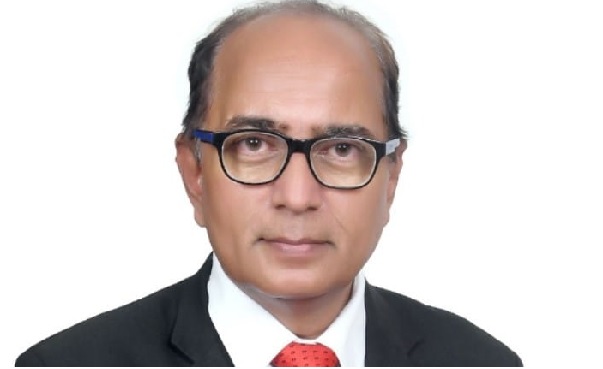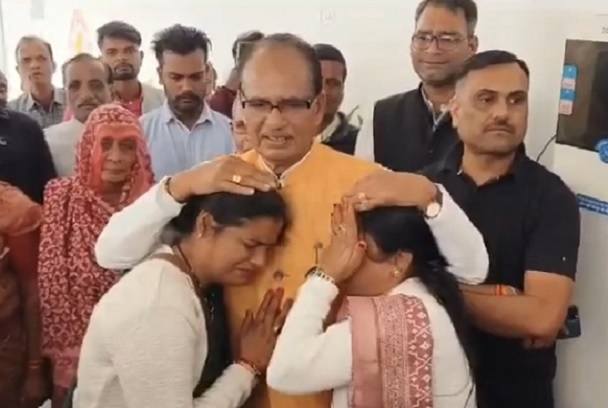'Is India ready for a United States style anti-discrimination law to stop racial, religious biases?'

Shahid Parvez Sayed
NewsBits.in
We all know that India is now a major global power, ready to take a seat in the UN and is all set to announce itself a 5 trillion dollar economy. But, the question is that whether India is ready to fight the most inbuilt trait of human nature: Discrimination?
As India’s economy continues to grow and its population becomes increasingly diverse, this important question begins to emerge: Is India ready to fight discrimination and implement an anti-discrimination law similar to that of the United States?
While the answer may depend on who you ask, the potential benefits of such a law are undeniable—from increased protection against discrimination in the workplace to the potential for improved access and quality of services.
The American Anti-Discrimination Law, which originated from Chapter VI of the Civil Rights Act of 1964, prohibits ‘discrimination based on age, gender, color, country of origin, religion, handicap and sexual orientation’.
Despite the prevalence of discrimination in India, those in power have yet to take action to address it. Perhaps implementing a law similar to the American Anti-Discrimination Law could potentially result in the loss of the status quo that they want to maintain. However, the benefits of such a law cannot be ignored any longer given the thousands of discrimination cases that continue to occur every day in India.
Let me tell you about the time I experienced discrimination in India. I was visiting from the US and decided to purchase an apartment. I went to a real estate developer and filled out the initial questionnaire. But as soon as he saw my name, he politely refused to discuss anything further. I mean, come on! I know my name is not like "Supercalifragilisticexpialidocious." it’s not that bad either. I was so mad that I stormed out of his office and called my lawyer to file a lawsuit. But who am I kidding? This is India, not the US. No lawsuit was filed, and I had to go back to the US to chase my American dream, without ever fulfilling my Indian dream of owning an apartment.
In yet another instance, I was trying to purchase a row house in Khargahar, Navi Mumbai. The real estate agent met me and showed me, which I loved. I agreed to the price, the problem arose when he asked whom this is being bought for. I said for my own use. That is when he bolted. I used humor to convince, telling him that I am not that Muslim you see on TV and have lived most of my life in the US.
Well, nothing worked!!
My story is not an isolated incident. Lately popular celebrities belonging to certain religion were at the receiving end of such discrimination. They had a bigger mega phone and made noises but as usual nothing came out of it.
Dr. Baba Saheb Ambedkar, the author of the Indian Constitution, was denied rental accommodations upon his return to India in April 1923, despite holding multiple law degrees from the US. Sadly, it’s possible he would face the same issue if he were to return from the US in 2023.
It's disheartening that, even after 100 years, nothing seems to have changed. Is it possible that the collective consciousness and sense of fairness among Indians has been lost, for how long? Surely Indians can do better than this. In 2016, one out of 1.3 billion Indians took a stand against discrimination and did his part in introducing a bill against discrimination.
Dr. Shashi Tharoor, a Member of Parliament from Thiruvananthapuram, Kerala, authored the 'Anti-Discrimination and Equality Bill' in 2016, inspired by the US Anti-Discrimination Law.
The proposed bill aimed to address various forms of discrimination and called for the establishment of a commission similar to the Corruption Commission, with the authority to investigate complaints and punish offenders.
Unfortunately, the bill didn't progress beyond being introduced as a private member bill, and it never reached the stage where it could be debated and improved upon.
Current laws against discrimination
Current legislation in India addresses discrimination in a piecemeal manner, including: Article 14,15, 16, 17, 20, 21, 44, 45, 46, 330, of the Indian Constitution,
Scheduled Castes and Scheduled Tribes (Prevention of Atrocities) Act, Factories Act 1948, The Industrial disputes act 1947 and the The minimum wages act 1948.
However, these laws do not comprehensively address all forms of discriminatory practices and do not focus on enforcing anti-discrimination measures throughout the country.
Potential benefits
An anti-discrimination law in India would offer significant benefits, starting with greater protection against workplace discrimination. Despite popular belief, India currently lacks laws safeguarding individuals from discrimination based on gender, race, religion, and other factors, leading to discriminatory hiring and promotion practices in many industries. If India adopts a US-style anti-discrimination law, such practices would be outlawed, and employers would be held accountable.
Enforcing an anti-discrimination law in India would create a culture of respect and acceptance, especially for those who have faced discrimination in the past. It would empower individuals to voice their concerns and speak out against discrimination, creating an environment of inclusivity and safety for all individuals regardless of their differences.
An anti-discrimination law in India could bring undeniable benefits, from protection against discrimination in the workplace to improved access to services. However, challenges such as adapting the law to the Indian context and effective enforcement must be addressed
In conclusion, for India to become a global leader or a ‘Vishva-Guru’, it must address and eradicate the various societal issues that plague it. An effective way to accomplish this is by introducing a US-style anti-discrimination law, which India urgently needs. It's time for this idea to be implemented universally to ensure that India stands for the values it espouses. Delaying action any further would be detrimental to the progress India seeks to achieve.
The jury is out and we shall see what and when a verdict against any form of discrimination is delivered by Indian parliament.
[Author is a practicing High Court advocate; views expressed are personal]









